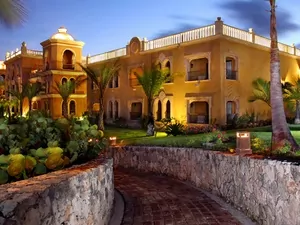
Real Estate, Residency, Citizenship, And Banking In The Dominican Republic
Planting Flags In This Top Caribbean Haven
Three years ago, a colleague started the process of applying for residency in three countries—Uruguay, Paraguay, and the Dominican Republic. His overriding objective was citizenship. He focused on those three jurisdictions because each offers liberal residency and naturalization rules.
My friend gave up on Uruguay when he learned that this country’s naturalization process would require him to spend more time in the country than he intended or had time for. His business keeps him in Central America most of the year.
He continued the process in Paraguay, where obtaining residency isn’t difficult and the residency requirement before becoming eligible for naturalization is only three years.
However, my friend’s preferred jurisdiction was the Dominican Republic, where the permanent residency requirement before naturalization is only two years. You can obtain permanent residency in the DR in any of the following ways:
- After five years of temporary residency…
- By qualifying as a pensionado by showing pension income of at least US$1,500 a month…
- By qualifying as a rentista by showing any verifiable income of at least US$2,000 per month for the last five years…
- By investing at least US$200,000.
In fact, the DR’s investor visa program allows you to apply for citizenship after only six months of residency. That was my friend’s plan.
This investor residency in the Dominican Republic is the quickest route to a second passport available anywhere in the world short of buying one. Note that this investor residency in the Dominican Republic is not the same as an economic citizenship program (ECP), because your US$200,000 investment can be liquidated once you’ve received your citizenship. That money isn’t simply lost as it is with the “donation” options that ECP countries offer.
Downsides Of Citizenship In The Dominican Republic?
The downside is that a Dominican Republic passport allows visa-free travel to only 51 countries. That’s why my friend initiated residency in more than one country. He wanted to obtain a second citizenship quickly; the Dominican Republic offered an opportunity for that. However, he also wanted broad visa-free travel options; a passport from Paraguay and/or Uruguay would have helped with that goal.
Essentially, he was setting up a tiered backup plan that’d be sitting on a shelf for him to pull down if ever he needed it.
My friend wasn’t a criminal on the run or planning to become one. He simply wanted as many options for living an international lifestyle as possible. He wanted an escape hatch should his home country, the United States, become unlivable in his view.
The Dominican Republic is a top choice for planting residency and citizenship flags. However, this country also offers other flag-planting opportunities, including to do with real estate investment.
I see the Dominican Republic, specifically the beachside town of Las Terrenas on its northern coast, as one of the best rental property investment markets in the world right now. Prices are low (you can buy a very rentable condo for as little as US$100,000), yields are strong (the right property in the right location with the right management can earn 10% to 12% net per year), the market is expanding, and local financing is possible.
The DR is also a place to consider planting a banking flag. You can deposit U.S. dollars into a CD to earn as much as 5% interest. Compare that with rates in the United States. The best rate I’ve seen in Panama lately is 4.5%.
Lief Simon
Mailbag
“Greetings, Lief. Having been retired here for some years now, I must agree with your assessment of Uruguay: Best to look elsewhere to retire or invest.
“Uruguay is the most expensive country to live in all of South America, a result in part to a combination of very high import tariffs, with 22% sales tax on top.
“The government is a ruinous mix of socialists and communists who have overburdened the nation with an enormous number of civil servants and higher taxes on everything, encouraged labor strikes to the point SMEs simply close their doors, applied a deliberate policy of neglect to an ever-growing criminal class, copied U.S. banking and finance directives in an effort to qualify for IMF loans the country will be unable to repay, and watched as the public school system devolved into daycare for loafing teachers who, when not on strike, have a 40% absenteeism rate.
“Paraguay appears to be a better choice for anyone looking to make a go of a business.”
J.D.



